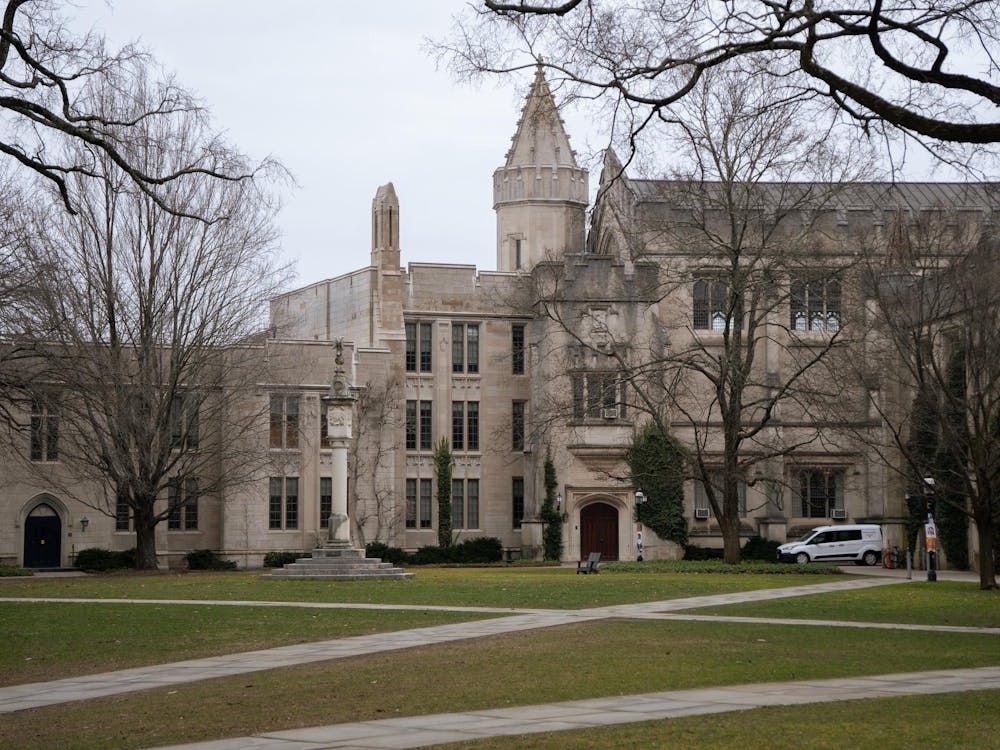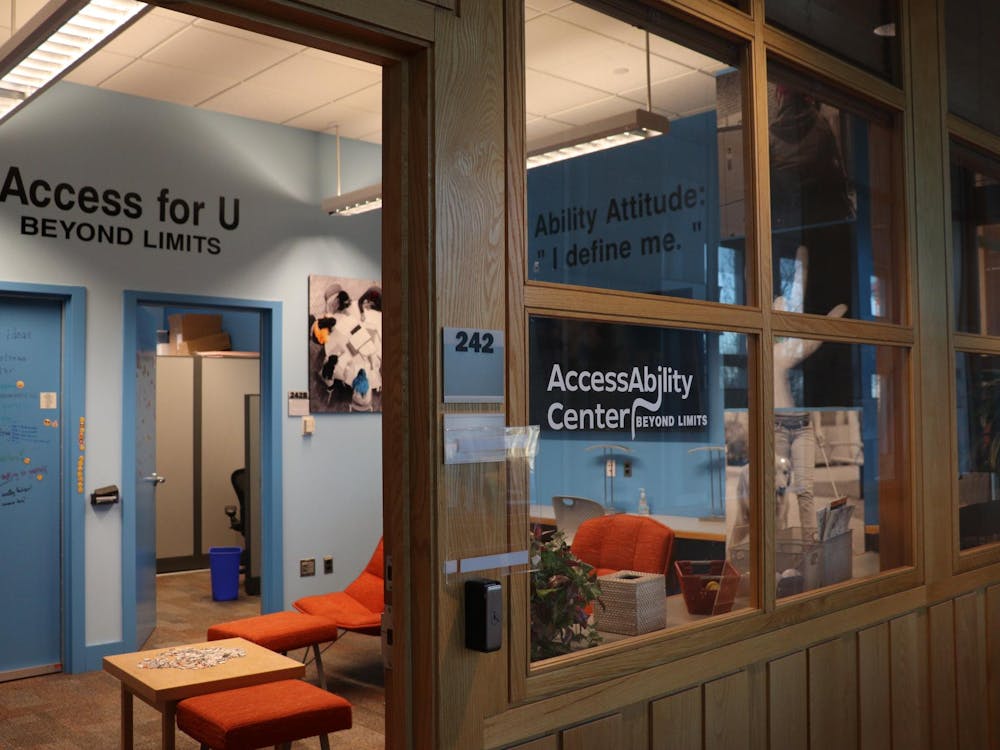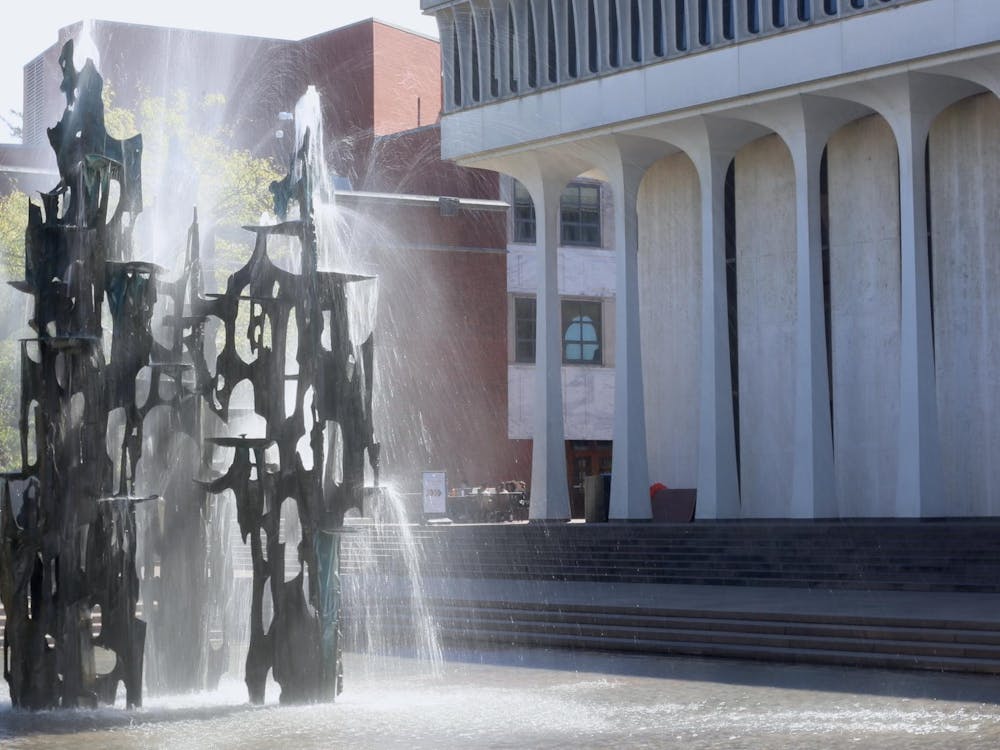“I was on my way to my microeconomics precept, and I made the mistake of making eye contact with Jesse Watters,” Jessica Wright ’19 said of her experience being featured in a recently aired segment, “Watters’ World: Princeton University Edition.”
To kick off the segment, which aired as part of “The O'Reilly Factor,” Fox News host Bill O'Reilly observed that college students have recently been expressing distress at seeing the word “Trump” written on walls and posters. This occurrence, according to O'Reilly, is evidence that “college students these days are very sensitive individuals.”
In the show, O’Reilly said that, in order to find out more about this phenomenon, “We [The O’Reilly Factor] sent Jesse Waters to Princeton University in NJ to find out what’s going on.”
Watters, an interviewer at Fox News who frequently appears on “The O’Reilly Factor,” visited Princeton on April 7 with the goal of jokingly engaging with students over the kinds of words and phrases they find offensive.
In the segment, Watters asked Princeton students how they feel about Donald Trump, “Islamic terrorism,” “black crime” and “gay crime," among other topics.
"When someone says ‘ghetto,’ how do you feel about that?” Watters asked a student.
“Isn’t it [white privilege] how you got into Princeton?” he asked another.
Briana Payton ’17, one of the students interviewed, decided to walk away when asked about the word “ghetto.”
Payton noted that when Watters asked her to do the interview, she expected to engage with him in a conversation about topics pertinent to the current University dialogue, such as the Woodrow Wilson debate. This expectation, she said, was soon disproved when Watters' questions skewed exclusively to the joking probing of “offensive” topics.
“That was really what I was interested in doing — having a conversation,” Payton said. “I walked away when I realized he wasn’t interested in having a substantive conversation and that he was just playing word games.”
Payton said that she felt the interview was “stupid” because Watters was making jokes, not engaging students in substantive, productive dialogue.

“He was trying to offend us by the things he was saying but what was more offensive was his stupidity and childishness and how he went about it,” Payton said.
She noted that Watters was making light of issues that actually affect people’s livelihoods and was painting students who are aware of those issues as somehow overly sensitive.
Payton noted that she does not have any significant qualms about the way other students responded and that she appreciated that students understood that the issues raised by Watters could be sensitive.
“I just think that it’s sad that he was able to waste people’s time like that. It was nice to see that people didn’t take his side and agree that students are too easily offended,” Payton said.
Wright noted that she didn’t know the interview would be aired on national television and said that if she knew it was going to be aired on Fox News, she would not have participated in the interview. Wright said that she felt she was being cornered into giving answers that Fox would have liked because she was asked multiple times to clarify her responses so they led in a certain direction.
Wright also noted that her responses were cut short and edited in a way that made them seem shallow.
“I talked about my belief that Islamic terrorism is an umbrella term, which he didn’t include as part of my response. The video included a short segment of my answer and not my reasoning behind it,” she said.
Wright noted that although she was also asked the question about the word “ghetto,” in the final edited video, only the responses of those who are African American were included.
Wright said that she believes those who were interviewed responded in an intellectual way that was representative of the student body.
“Within four hours of the interview, I searched up Watters’ World and sent an email to rescind my permission to be in the video,” Wright said, “and, of course, I never received a response and was still in the video.”
University students who watched the video questioned the integrity of the piece.
"The objective of this piece was clearly to bait students into making statements that would make it seem that college students at top universities are oversensitive. Instead, the students who were interviewed kept their cool in the face of cringe-worthy jokes and dumb comments from Jesse Watters," René Chalom ’17 said.
Ced Moise ’19 said that the questions were asked in a way to elicit a specific response that may or may not be authentic.
“The issues he brought up require such a deep conversation; it’s not something you can ask in a joking way. It was kind of a mental attack on all the people that were interviewed,” Moise said.








